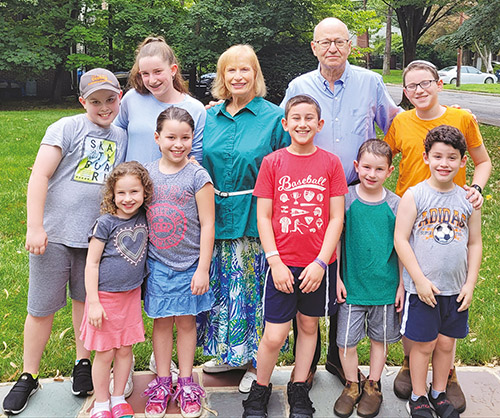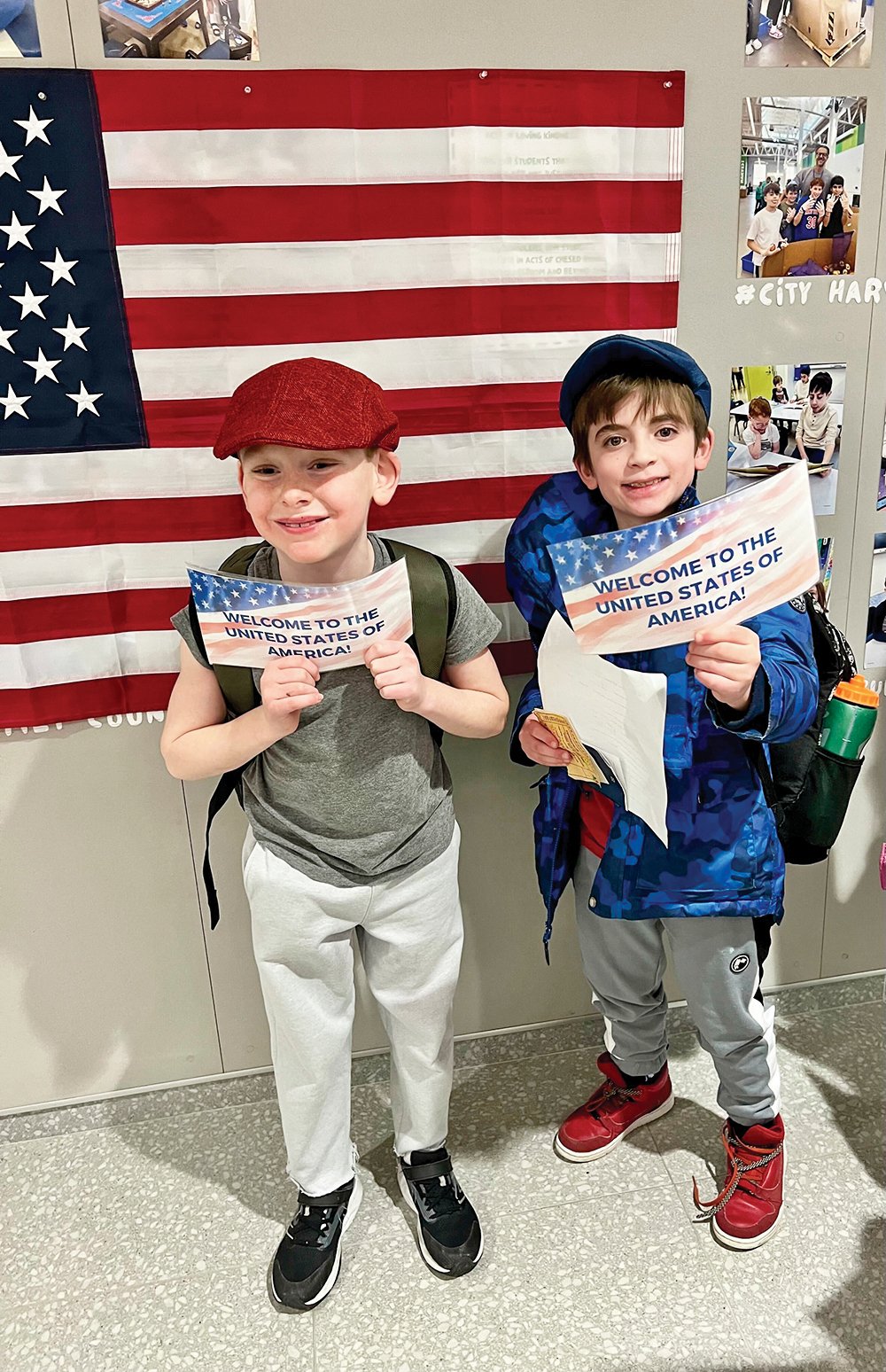

The following story is adapted from an article written by my mother for the Jewish Press in Omaha, Nebraska in 1990 after my father’s passing. It describes my father’s courageous and miraculous story of survival—the lone survivor of Ohrdruf—which he reenacted for my brother and me every Seder night when we were young. I did not learn until much later that he was also the very first person to be liberated from a German concentration camp in World War II by the American Army.
My father was incarcerated by Germans during World War II in three concentration camps including, finally, Buchenwald. Exhausted from hard work and lack of food, he was sent for one week’s recuperation to Ohrdruf, a subcamp of Buchenwald with about 8-10,000 prisoners, and was obliged to return or else…
There was no room for “lazy” people who didn’t work; no space could be wasted. For him the end was near as he lay there hopeless, hungry and almost naked on the bare bed of a few wooden boards. Every day the same camp guard taunted my father, counting down his remaining days with a sadistic smile. It didn’t cross the guard’s mind that this Jew might survive. How could that happen?
Meanwhile the Allied forces were approaching. Germans, who, wanting to destroy all evidence of their evildoings, decided on one more evacuation. One more attempt to destroy the human ghosts of this camp—no traces should remain.
In the square of the camp, great commotion—more guards, SS men and soldiers arrived; trucks were waiting for use.
And now soldiers with guns were running all over … always ready to strike a Jew.
It was a big square with many barracks. The soldiers ordered the inmates out and one by one; each barrack was emptied. The prisoners were lining up in the square. As the prisoners approached the trucks, clothes were thrown at them for the supposed trip.
My father got a blanket and a wooden shoe. Standing there helplessly, my father realized he could not survive such an ordeal. His mind was good, his will strong but his body was extremely weak—he was a skeleton. He could barely walk; his legs could not support him. He would be thrown on a truck with other weak people, driven away a few miles and shot—of that he was sure.
The risk of attempting an escape meant certain death. If caught, what kind of excuse would he have, he wondered. But maybe, just maybe there was a sliver of a chance to escape. He took the chance. One must not lose hope.
Slowly he started to move away, not looking back. He reached the nearest barrack, entering the room where, coincidentally, marmalade and bread was handed out to the prisoners the previous night. What next? Under which bed to hide? Which corner is the safest so as not to be discovered? Surely the soldiers will return for a final search. And indeed, they did.
For my father it was a moment of tremendous fear. The darkest corner was well chosen—saved for now—he was left alone.
But he couldn’t stay in the room overnight. What if someone appears? He looked around. In the ceiling there was a trap door to the attic. Hope! But how to get up there? There was a table, chair and barrel in the room. He had to think quickly of a way to get up to the attic and to destroy the traces pointing up—the evidence of a hiding place; not an easy task for a person in his physical condition. He took the thin blanket and tore it into pieces, making a rope. He tied it to one end of the chair and put the chair on the table and the barrel on top of the chair. He climbed into the attic and pulled the chair up with him. The barrel rolled off, leaving no trace of his hiding place.
He found a corner away from the window, ate bread and marmalade and prayed. He knew what came next would not be the result of his efforts. He needed God’s help. Exhausted, he fell asleep.
My father’s mother, who had been killed by the Germans, appeared in his dream. She fed him and blessed him saying, “I will have nachas from you.” Some time later in the night he was awakened by gunfire. His first thought was that the Germans had returned. Fear gripped him, but he survived the night.
In the morning he heard strange, unfamiliar voices. He thought perhaps the Americans had arrived. He approached the window and observed until he felt it was safe. He opened the window and called out to the American soldiers. They helped him down and gave him food. They looked for other survivors but found none in the camp.
My father was the only survivor in the camp.
General Dwight D. Eisenhower came a week later on April 12, and wanted to hear from the sole survivor of the camp.* My father was extremely weak, unable to stand and unable to lift the loaf of bread they had given him. He was near collapse. In a frail voice he described the conditions and treatment in the concentration camp. A rabbi who was with the soldiers told my father that it was Passover.
What a coincidence! A celebration of freedom—of personal freedom for my father and a repetition of the centuries-old story of the Haggadah.
My father’s courage, perseverance, hope and faith in God enabled him to survive the greatest of all crimes against humanity.
In researching the background on Ohrdruf, I came across a 5 minute Youtube video prepared in 2014 by Mr. Abe Plotkin, a U.S. Army vet from Scranton, Pennsylvania. He was an eyewitness to the discovery of my father and actually talked to my father in Yiddish when he was discovered by the U.S. Army. I tried to contact Mr. Plotkin but, unfortunately, he passed away by the time I learned of him.
The blessing that my father received from his mother in his dream came true. My father married my mother, Janet, a wonderful wife and mother. They came to America to create a new beginning, had two children, two grandchildren and eight great-grandchildren.
Growing up, my brother and I knew that our father was the sole survivor of the Ohrdruf concentration camp and liberated by the American Army on Passover. However, after my retirement, I did further research and discovered that Ohrdruf was the very first concentration camp discovered by the Americans and realized that, in fact, that my father was the very first survivor liberated from a German concentration camp by the Americans.
I learned that Generals Bradley and Patton also came to see this camp with General Eisenhower because it was the first camp discovered by the Americans and the only concentration camp that Eisenhower toured.
General Eisenhower memorialized his visit to Ohrdruf in a cable on April 15, 1945, stating the following, which is engraved in the Eisenhower Plaza at the Holocaust Museum in Washington, D.C.
“The things I saw beggar description … I made the visit deliberately, in order to be in position to give first-hand evidence of these things if ever, in the near future, there develops a tendency to charge these allegations merely to ‘propaganda.’”—Ohrdruf, April 15, 1945
In addition to my father, Louis, being a survivor, my mother, Janet, was also a Holocaust survivor. My father, originally from Czestochowa Poland, was in four camps (Auschwitz, Dachau, Buchenwald and Ohrdruf) while my mother (Glaser/Bachner maiden name) originally from the Chrzanow Poland area, was in two camps: Auschwitz and Ravensbruck.
They met in Munich after the war as they were trying to find missing relatives. As my father describes it, he was walking up the stairs in a hotel while my mother was walking down the stairs and he was immediately smitten.
After the war we were sent to Council Bluffs, Iowa by HIAS in 1949. My father maintained his commitment to Judaism even after being fired from his job after one week for refusing to work on Shabbos. He found work as a house painter, which was his vocation in Poland before the war. Due to his willingness to work and endure very harsh conditions, the owners did not require that he work on Shabbos. In 1954 we moved across the river to Omaha, where my parents lived until my father’s passing in 1989 and my mother’s passing in 1992.
Helen and I, longtime members of Rinat Yisrael, have lived in Teaneck for 44 years, where we raised our two children, Shira and David. My wife, Helen (Mintz), raised in Minneapolis, is also a child of Holocaust survivors. Helen, with a B.S. in English education, was the physical education teacher at RYNJ for 32 years. Before retirement, I worked in the chemical industry for 44 years in a variety of positions. Our children Shira and her husband, Ari Zoldan, live in Wesley Hills with their three children, while David and his wife, Meredith, have lived in Ramat Beit Shemesh with their five children for nearly 10 years.
* In the period between the American soldiers’ arrival on April 4 and General Eisenhower’s arrival on April 12, other survivors who jumped off the trucks returned to Ohrdruf to be under the protection of the U.S. Army, two of which were also interviewed by General Eisenhower.
Charles Ickowicz was born in Stuttgart, Germany while his parents were living in a Displaced Persons (DP) camp. He was raised in Council Bluffs, IA and Omaha NE. Charles has a BS in chemistry from Creighton University and an MBA in Finance from NYU. He worked in the chemical industry for 44 years in a variety of positions including most recently at Ashland/Hercules as a corporate account manager. This included a highlight of representing the company to their Israeli accounts. While Charles and Helen still live in Teaneck, now retired, they spend a significant amount of time in Israel.
By Charles Ickowicz













